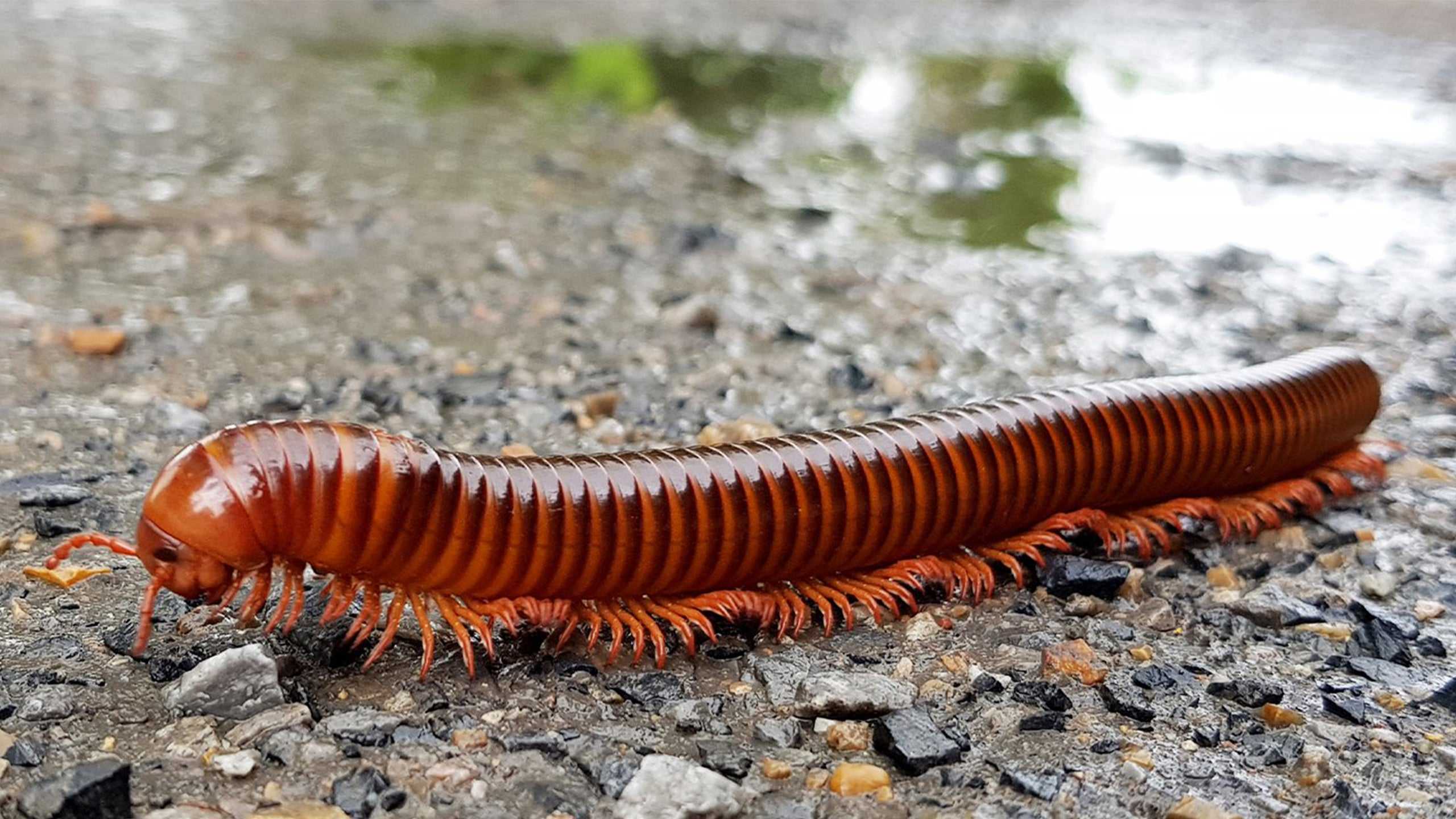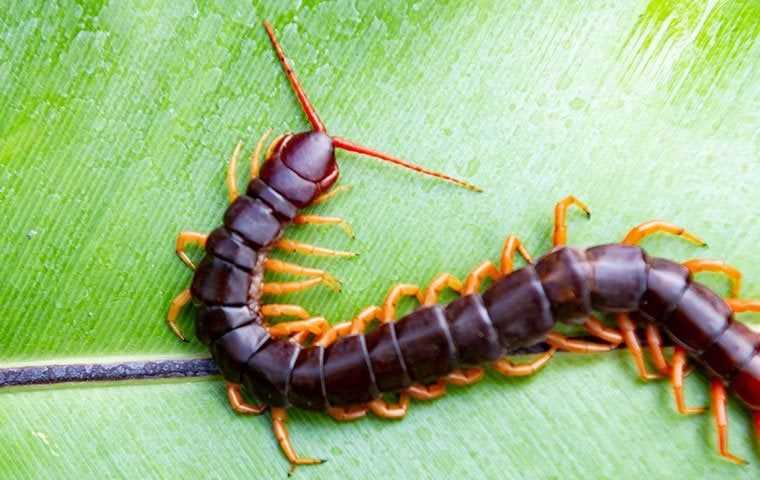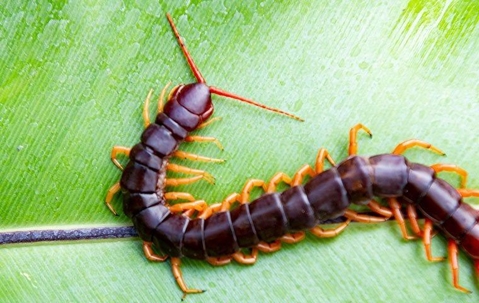
A Guide To Centipedes And Millipedes In Bradenton

If you think centipedes and millipedes just stay outside all the time, you'd be wrong, and that's why you need to include them in your Florida pest control plan.
Frequently Asked Questions About Centipedes And Millipedes
What are centipedes and millipedes?
Centipedes and millipedes are arthropods that look pretty similar to one another at first glance. Indeed, they have a lot of things in common. They're both long and flexible, with sectional bodies and pairs of legs in each section.
However, you'll notice a few big differences when comparing centipedes versus millipedes. Centipedes are flat, while millipedes have a round body shape that allows them to roll onto a tight ball. Millipedes have two pairs of legs per main body section, while centipedes only have one. Centipede legs are also usually longer and sturdier than millipede legs, which look like tiny hairs or threads underneath their bodies.
Are centipedes and millipedes dangerous?
Neither centipedes nor millipedes are all that dangerous. It's true that centipedes are venomous, and they use their sharp forelegs to poke holes through your skin before injecting their stinging venom. However, centipede bites are not deadly and rarely do much more than cause localized swelling and moderate burning pain. The only exception to this rule will be if you're allergic to insect venom. If you have an allergy to bee stings, then there's a good chance you'll react to centipede venom as well and could even end up in anaphylactic shock.
Meanwhile, Millipedes don't even have venom and are not physically dangerous; they're more of a nuisance. Your house might wind up with a millipede smell if you have a severe infestation, but you don't have to worry about being bitten, stung, or given a horrible disease.
Why do I have a centipede or millipede problem?
Different things can attract a centipede or millipede infestation. In fact, if you have a millipede infestation, it may attract centipedes because centipedes are predators. These venomous arthropods hunt like spiders and scorpions, capturing prey alive and using their venom to subdue it.
Millipedes, on the other hand, are scavengers that look for decaying plant material and other organic matter to eat. If you have a lot of rotting leaves or plant litter in your yard, it could attract millipedes, but centipedes will be more interested in another pest infestation. Common pests that attract centipedes include roaches, silverfish, crickets, and even other centipedes.
Where will I find centipedes and millipedes?
You'll find centipedes and millipedes both crawling along out of the way of people. Millipedes like warmth and moisture, so you're more likely to find them outside crawling through wet leaf litter or underneath debris in your yard. Centipedes are more likely to be in places where their favorite prey is, such as under appliances or in basements and crawl spaces. You may also find them in cabinets or dark closets.
How do I get rid of centipedes and millipedes?
The reality is once you have a centipede or millipede infestation, it can be very hard to get rid of them. Millipedes and centipedes in Florida are some of the most stubborn pests around, and these many-legged bugs have a hard time taking no for an answer. Sending them packing can be tough.
Fortunately, we have all the tools and tricks to get rid of your centipede or millipede problem here at Westfall's Lawn and Pest. If you need to step up your centipede or millipede pest control game, give us a call or visit our contact page.
How can I prevent centipedes and millipedes in the future?
In order to deter centipedes and millipedes, you'll need to take different steps to keep them away. The best thing you can do to keep centipedes away is to get rid of infestations of pests that could be attracting them. If you have a lot of their prey on your property or in your house, centipedes will come running. To prevent this:
- Cover all indoor and outdoor trash cans.
- Fix moisture problems like poor drainage or condensation.
- Store pantry foods in airtight containers.
- Clean frequently to reduce food smells.
Taking these measures can help prevent centipede infestations by making your house less attractive to the prey that draws them in. To prevent millipedes, just focus on keeping moisture and decaying organic matter like leaf litter off your property. And remember, if you end up with an infestation of either of these annoying pests, just contact us here at Westfall's Lawn and Pest!



